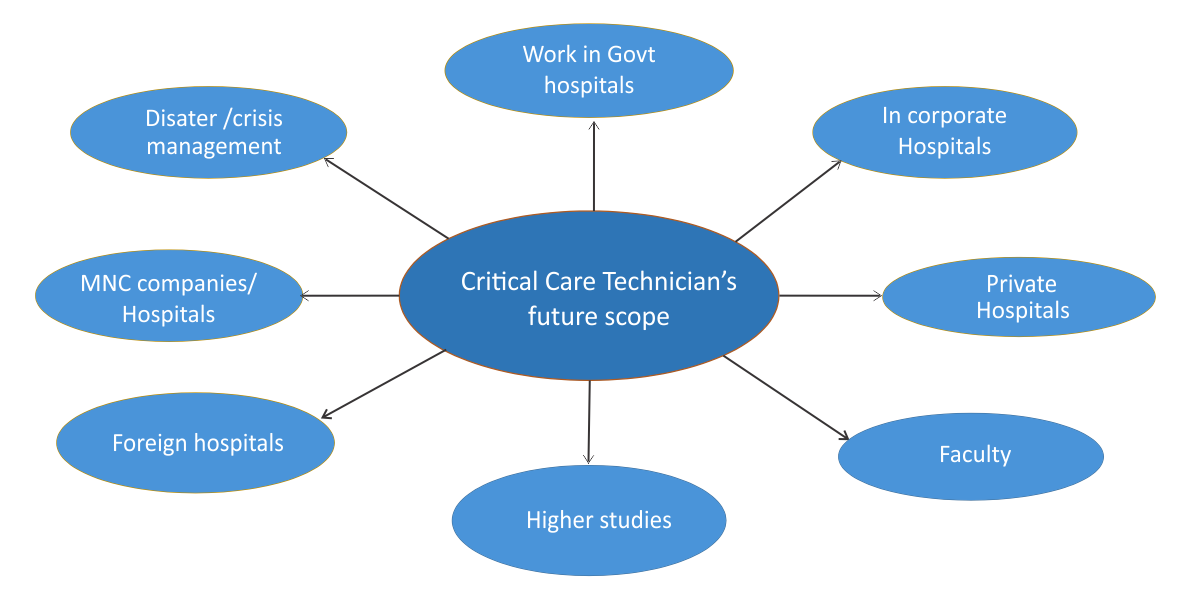Critical care technicians are trained professionals who respond quickly and competently to medical emergencies. When entering an accident scene, a critical care technician quickly assesses the problems and begins implementing medical aid. Problems a critical care technician are trained to respond to includes heart attacks, poisoning, snake bite, falls, gunshot wounds, assaults, and Road traffic accidents(RTA).
The professionals can give BLS and ACLS immediately to save the human being and as well as transport patients to concerned hospital.
These professionals can treat a variety of injuries and physical ailments. Critical care technicians generally need to complete a formal educational training program and acquire a state license and AHA certificate before working in the field.
In this class, critical care nursing students learn the procedures, (A to F)performing physical examinations and taking medical histories from patients. They learn the necessity of infection control, including quality, safety and sanitation skills. They learn how to interpret the results of investgations, perform tracheostomy and treat patients on ventilators. They also study the parts and functions of the pulmonary, gastrointestinal, endocrine, cardiovascular and renal systems.
Health assessment and health screening techniques for critically ill patients are examined in this course. Students focus on patients’ mental and physical health, nutrition, family relationships, sleep patterns and growth. Students are also trained to recognize the signs of patient neglect, abuse, pain and substance abuse, as well as critical and chronic conditions.
This course teaches diagnostic skills. Students learn to identify potentially life-threatening conditions, chronic illnesses, addictive diseases and mental health problems. Students become proficient in ordering and interpreting diagnostic tests. They learn the diagnostic procedures and technical skills needed to determine patients’ medical conditions.
In this class, students plan interventions for patients with deteriorating health, which may include administering life support. They oversee patients’ response to life support measures and learn how to modify their treatment plans as a patient’s condition changes. Students learn how to insert tubes, suture wounds and monitor respiratory and nutritional support.
We have very good experienced faculties to teach and train students in this field. We have long standing and close links with hospitals and medical industries, where students will gain a practical exposure. This offers a challenging yet supportive environment in which to study.
To get a better idea about the course structure, let us check out some important subjects present in D.opt program.
Not all the subjects present in this program have been mentioned.
Students will be upgraded in their knowledge according to the scientific and technical development in the medical industry.
Global institute follows direct admission process. Interested candidates have to fill the application form. Deserving candidates will be allotted seats depending upon intake capacity of the institute and marks scored by them in board examination.
